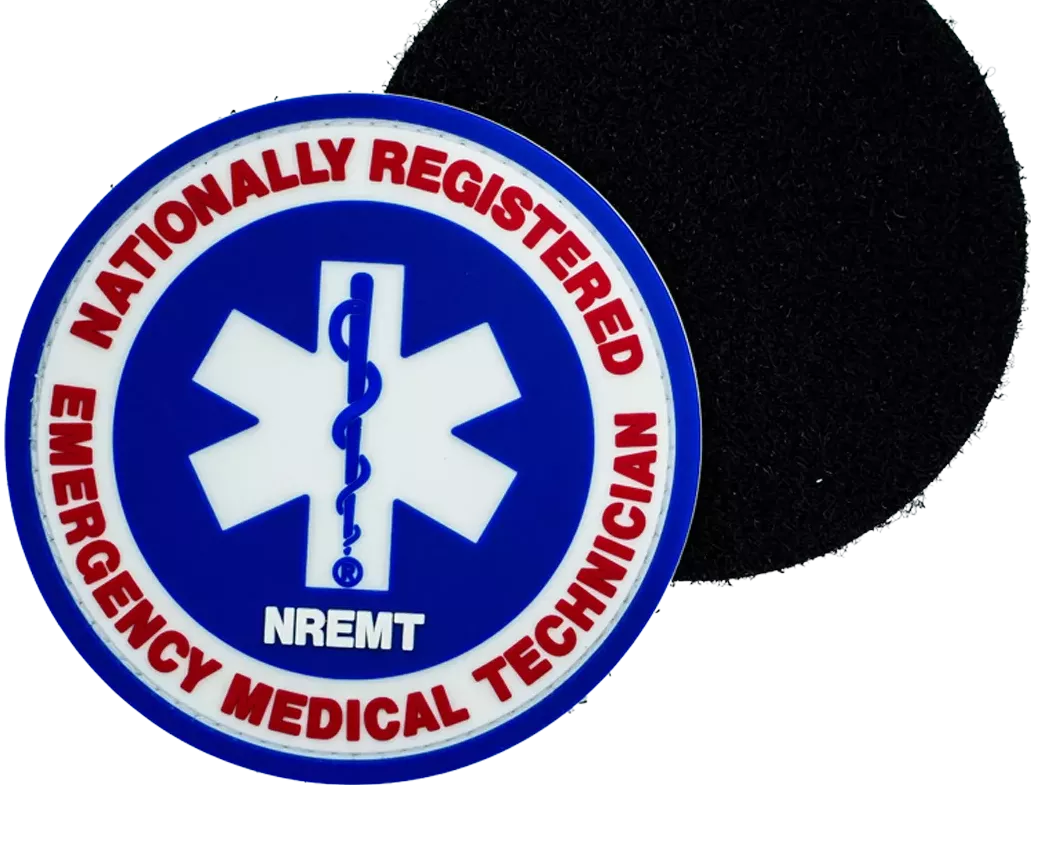The National Registry has been active since 1970. Prior to its implementation, people working on an ambulance were basically just taxi drivers. I know that also seems to be the case sometimes now, however prior to the 1960s and 1970s ambulance crews would basically just pick up a patient and drive them to a hospital or doctor, they wouldn’t provide any medical treatment. Since 1970, obtainment of NREMT has allowed EMTs and Paramedics to be nationally and internationally accepted as competent medical providers. Do you currently have a National Registry certification? Have you struggled to get it or maintain it? “The National Registry of Emergency Medical Technicians (National Registry) is the non-profit
Emergency Medical Services (EMS) Certification organization for the United States. Its mission is to provide a valid, uniform process to assess the knowledge and skills required for competent practice by EMS clinicians throughout their careers, and to maintain a registry of certification status.” (NREMT, 2025).
It can be a challenging process to get your National Registry certification. According to the NREMT, more than half a million people currently maintain a certification with the National Registry. They offer certifications for Emergency Medical Responders (EMR), Emergency Medical Technicians (EMT), Advanced Emergency Medical Technicians (AEMT), and Paramedics, (NRP). (NREMT, 2025). All the different levels mandate a different number of CEU hours and refresher requirements. NREMT is currently recognized by all 50 states, and it is currently required in many states in order for you to work as any form of emergency medical technician. According to the Labor of Statistics, there are approximately 270,000 EMTs and Paramedics working in the United States today. (Bureau of Labor Statistics, 2025). Meaning there are nearly double the number of people who have NREMT, who are not using it in their career. That goes to show you how valuable people deem this certification to be, they maintain it even if they don’t currently need it.
To obtain it in the first place you must go to class. EMT class, Advanced, Paramedic, etc. You must complete the entire course and pass your tests and practical requirements. Your school or program then has to sign off on your ability to test for National Registry. Now you have to pay to take the test and pay to take the practicals. Hopefully you can pass it on your first try, if not then you are allotted two more chances at it before you need some remedial training before retesting. According to National Registry, there is an approximate 70% chance you will pass the required testing within the first three tries: EMR 73%, EMT 74%, AEMT 67%, and paramedic 77%. With pass rates like this, obviously the testing process is not easy. It requires so much more than just memorizing facts or medication doses. It tests your ability to think critically and adapt to changes in the scenario or patient condition.
For many people it can seem overwhelming. In EMT or Paramedic class, you are largely taught “the book”. Drug doses by the book, medical conditions by the book, cardiac rhythms according to the book, etc. But in real life, people are vastly different, and attempting to treat them all the same is not going to work. In real life you could have 10 patients complaining of chest pain or difficulty breathing, and they will all have something different wrong with them, requiring different treatments. That is something that National Registry tries to get you to understand. People are not books; they require you to think logically and critically in order to treat them the most effectively.
After you have successfully passed and you get your national certification, now comes the task of maintaining it.
This time of year, it seems like everyone is scrambling to get enough CEUs and refresher classes to renew their National Registry certification and maybe even their state licensure. Every couple of years, this endless cycle comes around. Attend the classes, go over stuff you already know, or maybe even learn something new, renew your CPR, and maybe even ACLS, then go to the National Registry website, input all the data, pay the recertification fee, get signed off by your training officer and whichever company or department you are affiliated with, and then hopefully you are good to continue working for another cycle. Do you ever stop to think “Why do I have to keep doing this? What’s the point?” Or some similar train of thought.
For those who do not want to take multiple classes every couple years to get your refresher hours, you can opt to retake the NREMT exam to renew your certification every cycle. However most people do not take this option. That is because the exam changes. As we make changes in medications, treatment, and equipment, the exam questions change to reflect that. If you do not pass the exam, you will then be required to take approved courses and get your required number of hours in order to renew.
It can seem redundant at times. It can be stressful, costly of both time and money, and it can seem like a waste of time, but having and maintained your National Registry can be very valuable for you, both in your job choices and your medical knowledge and skills. Medicine is always changing. Medications come and go, routes and doses change. Equipment is always evolving. We get new information via research that can help us help our patients in the most beneficial ways. National Registry tries to make sure you have the more up to date information on these changes.
Imagine you finished EMT or paramedic school 5, 10, 20 or more years ago. If you were never required to take refresher CPR classes, you weren’t required to do any routine training, how many of you would honestly spend your free time to do this stuff? If you’re being honest, you probably wouldn’t, or you wouldn’t do it often. So, our knowledge would quickly become outdated. Our equipment, medications, and protocols would all be outdated. How much do you think you’d be helping your patients if you never worked to improve your skills, you never read up on new research, or your protocols never changed. For some of you slightly older medics, think back to your equipment and protocols when you started working in EMS. How does that stuff compare to today? I assume it has changed a lot. Think about the use of backboards, giving oxygen to people, treating abdominal pain with narcotics, airway changes such as RSI and cricothyrotomy, and so many more things that have vastly changed. Well, it changed because medicine is always changing.
Over the last five decades, “the National Registry has remained steadfast in upholding its mission to provide a valid, uniform process to assess the knowledge and skills required for competent practice required by professionals throughout their careers and by maintaining a registry of certification status.” (NREMT, 2025). National Registry has their own research department, staffed with qualified medical personnel who try to stay on top of new advances and changes. They also work closely with other research agencies who are doing the same thing. NREMT is not just a card to carry around or to keep a screen shot of, it is proof that you are always improving. You are keeping up with the times, changing in assessments, policies, recommendations, equipment, and everything else patient related. It shows that currently, you are qualified to practice medicine at your given level.
Maintaining National Registry can sometimes be time consuming. If you do a quick Google search for the requirements, as well as where you can get CEUs and refresher training, you will see many options for you. Some training can be done in person, but more and more is being conducted online, like with Distance CME. People have busy lives and sometimes weird work schedules. Finding approved classes online lets you take the classes when you have time. You can pick and choose when you want to take the classes and how quickly you want to get them done. Some states will even let you write off the cost on your taxes or your company or department might cover the cost for you.
References
Bureau of Labor Statistics, U.S. Department of Labor. (2025). Occupational Outlook Handbook, EMTs and Paramedics. https://www.bls.gov/ooh/healthcare/emts-and-paramedics.htm
NREMT. (2025). About the National Registry. National Registry of Emergency Medical Technicians. https://nremt.org/getmedia/1059cc0b-cb67-43d6-a2d6-75dd3412fa71/NREMT-Media-Kit-April-2023.pdf

